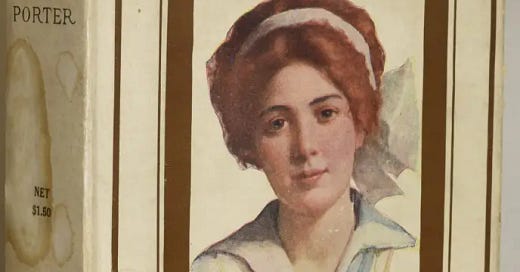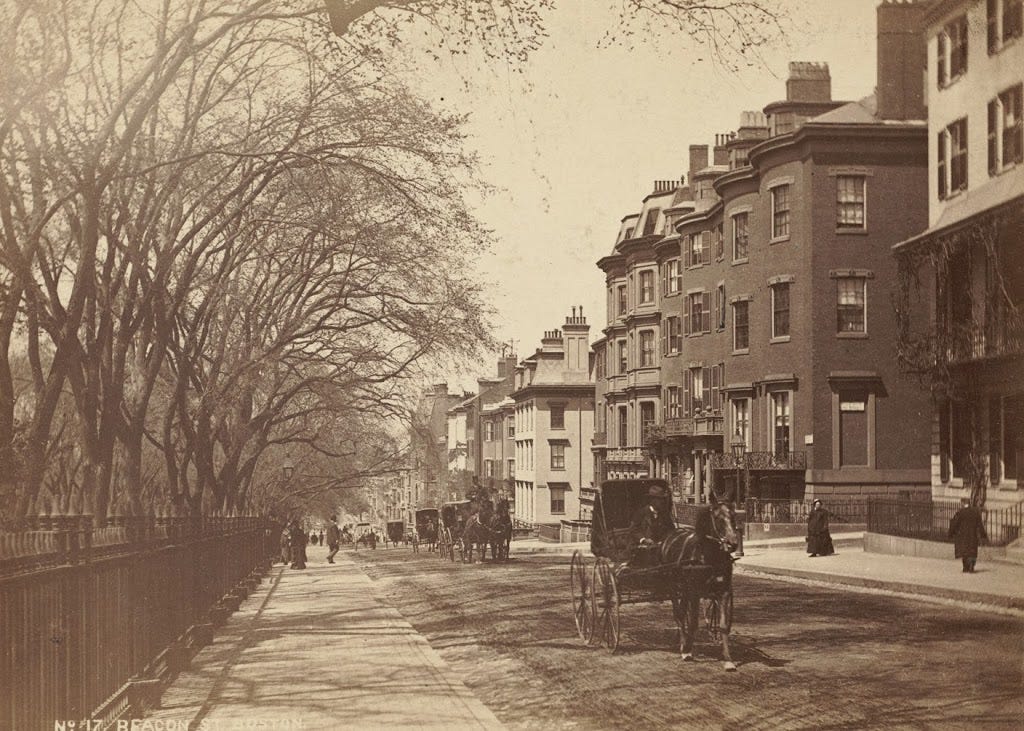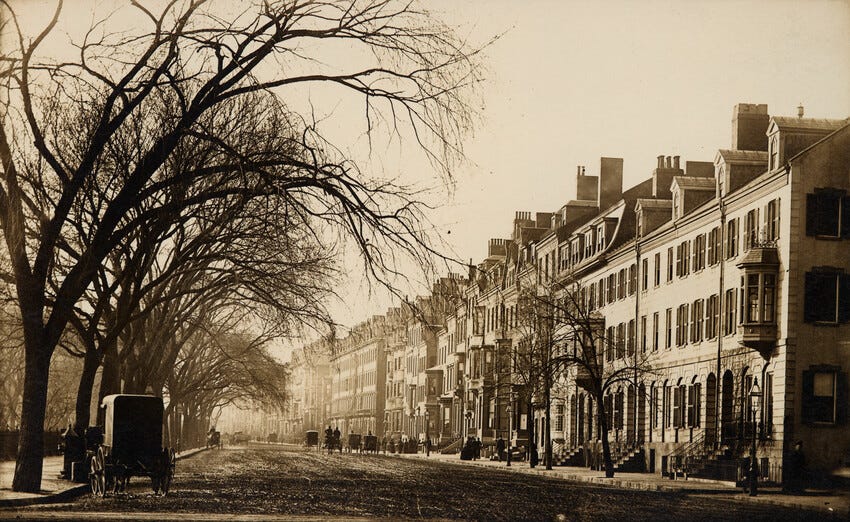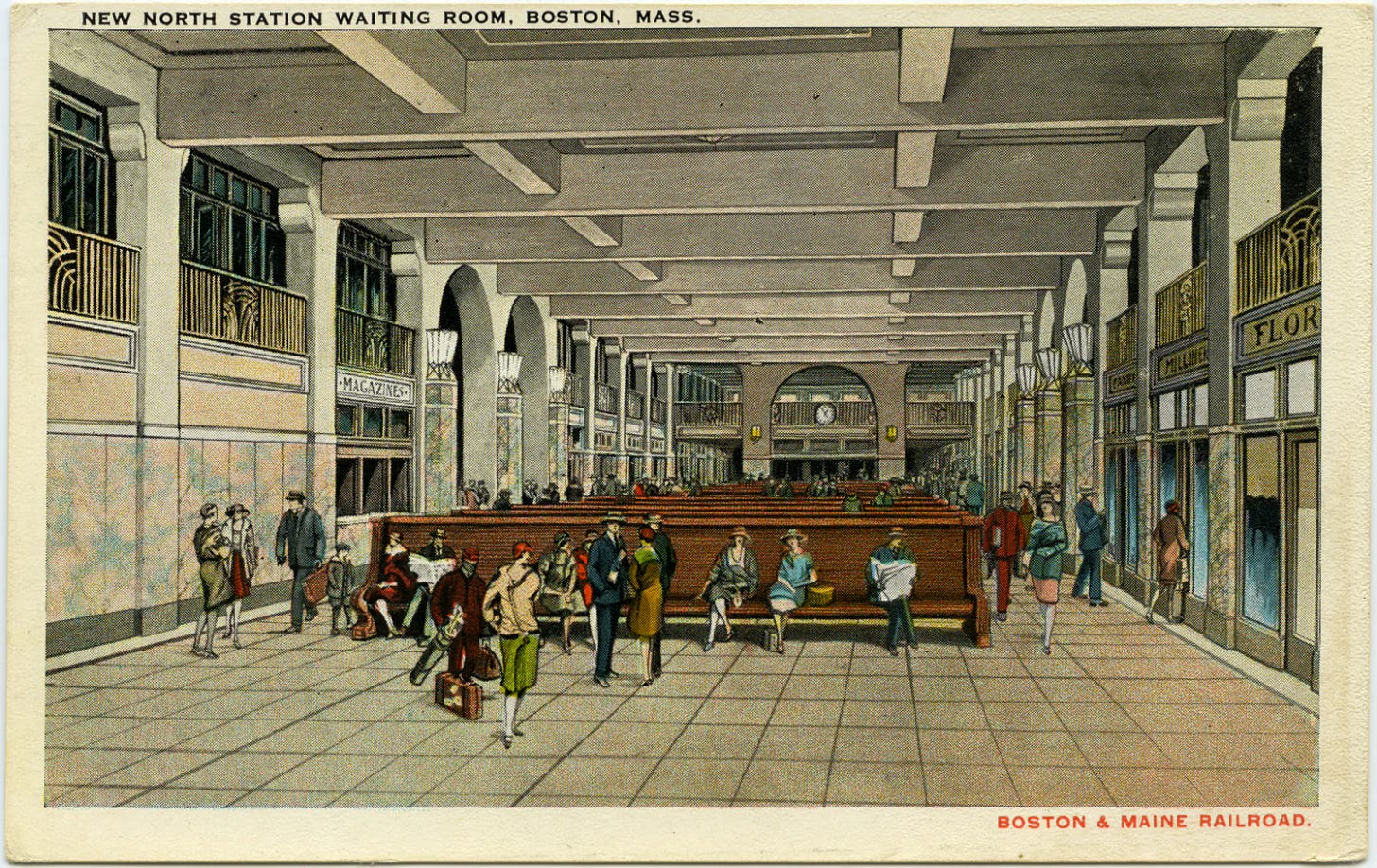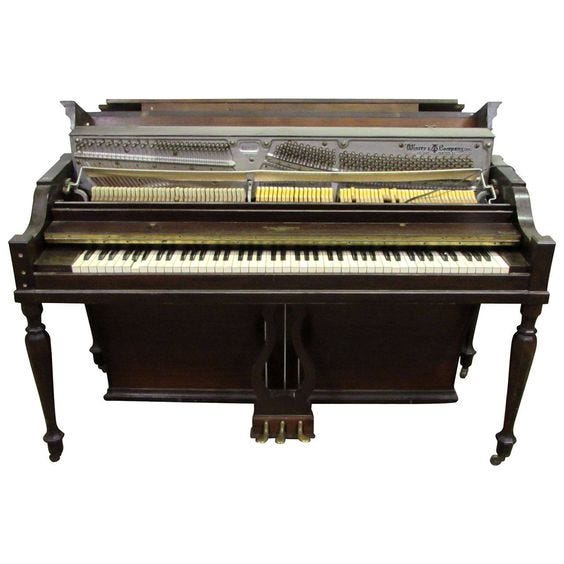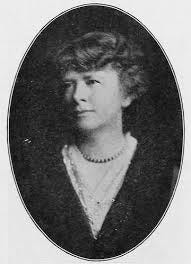Billy Nielsen, 18 and her small-town attorney, James Harding, are perplexed. Her last relative has died, and Billy needs a place to live. She has no family or friends. Billy tells Mr. Harding that her father, Walter Nielsen, had named her after a college chum, William Henshaw. "William Henshaw! Not the Beacon Street Henshaws!" he cried.
“I've known the family for years, and this William was a college mate of my boy's. Nice fellow, too. I've heard Ned speak of him.
Although Billy has never met William Henshaw, she and her attorney decide that orphaned Billy will contact William and ask if she can live in Boston with him. At the end of Chapter I, she writes four long pages to "Dear Uncle William," on Beacon Street and neglects to say that she is a girl.
Eleanor Porter published her fourth novel, Miss Billy, in 1911, the same year as The Story of Marco, but it is quite different. In 380 pages and 52 short chapters the reader watches Miss Billy Nielsen, a glamorous 18-year-old orphan, whirl through the lives of three bachelor brothers. The book was a best-seller with two sequels: Miss Billy’s Decision in 1912 and Miss Billy Married in 1914.
Eleanor Porter added some romance and music to her books about Margaret and Marco, but she mostly showed the need for reform of child labor. In this book she also favors reform (Billy Nielsen makes a home for unfortunates), but the protagonist is a glamorous heiress and socialite who falls in love three times, studies music notation, and composes music during Boston’s gilded age.
As Billy’s letter makes it way their Beacon Street home, we learn the Henshaw brothers have lived there all their lives. After their parents died, William had striven to make a home for the two younger orphan boys, Cyril, twelve, and Bertram, six. We also learn that William Henshaw was married, but his wife and their infant son died, and since then, the house had known almost nothing of a woman's touch or care. William’s married sister, Kate Hartwell, lives on nearby Commonwealth Avenue.
Their multi-story house by the Boston Public Garden is nick-named “The Strata” and is home to: Cyril, 32 a musician; William, 40, a collector; and Bertram, 24, a portrait artist. The youngest brother, Bertram, describes what he calls his brothers’ Strata:
“First: stratum number one, the top floor; that's Cyril's, you know. …[N]ote the bare floors, the sparse but heavy furniture, the piano, the violin, the flute, the book-lined walls, and the absence of every sort of curtain, cushion, or knickknack.”
“… William's stratum next, the third floor. …[A] State Street broker, well-off, a widower, tall, angular, slow of speech, a little bald, very much nearsighted, and the owner of the kindest heart in the world... William collects things. … Miniatures, carved ivories … theatre programs, playing-cards…”
Bertram’s studio is on the second floor of the Strata. It has his paints and brushes and easels, his old armor, rich hangings, rugs, and cushions, and everywhere his specialty—his "Face of a Girl." He is acclaimed for his many versions of Face of a Girl.
Besides the Henshaw brothers, The Strata is frequented by Dong Ling, the Chinese cook, and Pete, the versatile butler/handyman.
Billy’s excited letter arrives at the all-male Strata, and William reads it aloud. It is an example of Eleanor Porter’s mastery of breathless, comical chatter — a gift that she famously put to use in Pollyanna.
"DEAR UNCLE WILLIAM: Do you mind my calling you that? You see I want SOME one, and there isn't any one now. You are the nearest I've got. Maybe you've forgotten, but I'm named for you. Walter Neilson was my father, you know. My Aunt Ella has just died.
Would you mind very much if I came to live with you? That is, between times—I'm going to college, of course, and after that I'm going to be—well, I haven't decided that part yet. I think I'll consult you. You may have some preference, you know. You can be thinking it up until I come.
There! Maybe I ought not to have said that, for perhaps you won't want me to come. I AM noisy, I'll own, but not so I think you'll mind it much unless some of you have 'nerves' or a 'heart.' You see, Miss Letty and Miss Ann—they're Mr. Harding's sisters, and Mr. Harding is our lawyer, and he will write to you. Well, where was I? Oh, I know—on Miss Letty's nerves. And, say, do you know, that is where I do get—on Miss Letty's nerves. I do, truly. You see, Mr. Harding very kindly suggested that I live with them, but, mercy! Miss Letty's nerves won't let you walk except on tiptoe, and Miss Ann's heart won't let you speak except in whispers. All the chairs and tables have worn little sockets in the carpets, and it's a crime to move them. There isn't a window-shade in the house that isn't pulled down EXACTLY to the middle sash, except where the sun shines, and those are pulled way down. Imagine me and Spunk living there! Oh, by the way, you don't mind my bringing Spunk, do you?
"Please let me hear from you very soon. I don't mind if you telegraph; and just 'come' would be all you'd have to say. Then I'd get ready right away and let you know what train to meet me on. And, oh, say—if you'll wear a pink in your buttonhole I will, too. Then we'll know each other. My address is just 'Hampden Falls.'
"Your awfully homesick namesake,
"BILLY HENSHAW NEILSON"
It takes two chapters for Billy to arrive. The lawyer’s letter to William is nearly illegible, and, although he clarifies that Billy will inherit her fortune at age twenty-one, Mr. Harding does not clarify that Billy is a girl. William telegraphs: “come,” and Billy responds immediately. I'm coming to-morrow. Train due at five P. M. The Henshaws hastily fix up a boy’s room with swords, guns and a spider collection. At the suggestion that Billy might not like the furnishing and could be a “sissy chap,” William retorts: "No son of Walter Neilson's could be a sissy. Neilson was the best half-back in ten years at Harvard…”
Billy’s telegram is an opportunity for Eleanor to introduce the Henshaw sister, Kate, an important character who appears in all three Billy books. Kate Hartwell is bossy, over-confident and sure to complicate a situation. Her sharp tongue is obvious immediately.
To the Beacon Street house, Billy's cheerful telegram brought the direst consternation. Even Kate was hastily summoned to the family conclave that immediately resulted.
"There's nothing—simply nothing that I can do," she declared irritably, when she had heard the story. "Surely, you don't expect ME to take the boy!"
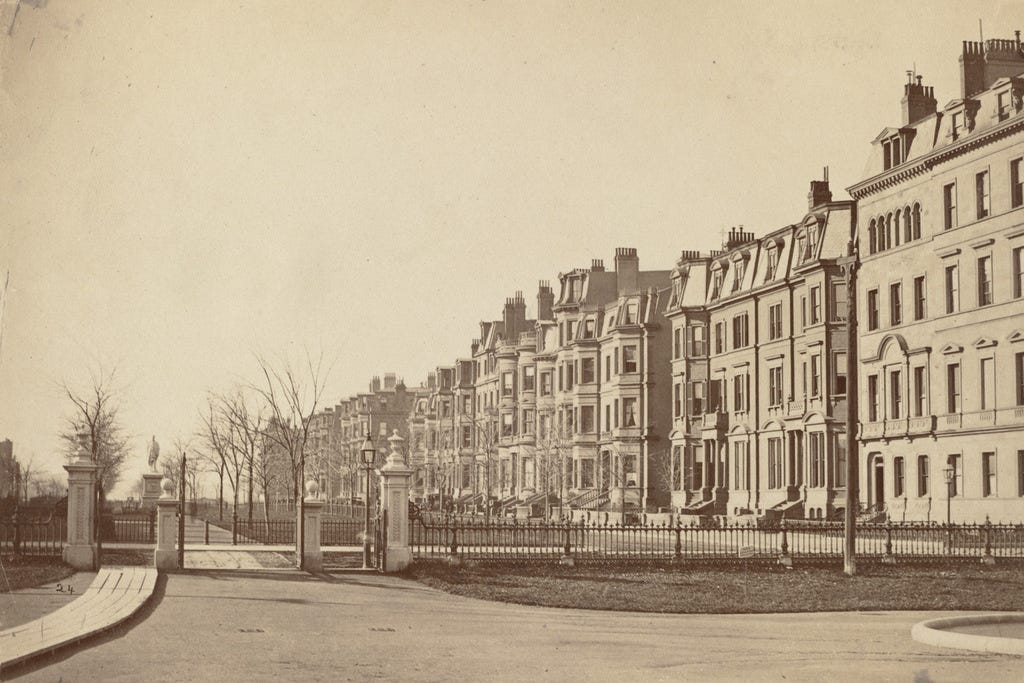
"No, no, of course not," sighed William. "But you see … this is so—so sudden!..”
"But what could you expect after sending that idiotic telegram?" demanded the lady. "'Come,' indeed!"
William Henshaw defends his decision to provide a home for the lad and sets out to North Station to meet Billy. The train arrives, and Billy stands alone on the platform holding a basket. William searches for a young man in the waiting room and goes outside to the street. Finally he queries the solitary girl and meets Miss Billy.
“To William Henshaw the world swam dizzily and went suddenly mad.” In his astonishment, he excuses himself and dashes to a telephone to warn the Strata. Bertram answers and says to bring her home.
"Home – home!" chattered William. "Do you think we five men can bring up a distractingly pretty 18 year old girl with curly cheeks and pink hair?”
Bertram calls sister Kate Hartwell who hurries across the Boston Public Gardens to hear the news.
She was not stunned. She had a great deal to say.
"Really, this is a little the most absurd thing I ever heard of," she fumed. “What in the world does your brother mean?”
The door opens and Billy enters with William. Billy is gracious and grateful.
"Oh, you don't know how lovely this is – to me." She cried softly. "And to think that you were willing, I should come!”
Billy introduces her pet kitten named Spunk.
William contrives to have Kate stay the night while Billy is there. The conversation includes Billy's relief at escaping the Harding home and its two old maids.
Billy told them, then, of her life at Hampden Falls. … She soon had every one laughing, even Cyril, over her stories of the lawyer's home that might have been hers, with its gloom and its hush and its socketed chairs.

Kate leads Billy to the bedroom where Billy discovers it was furnished for a boy. She thinks their confusion is very funny. Finally, she is left alone in the bedroom. Back downstairs, Kate argues with William:“Why surely, you're not thinking NOW that you could keep this girl here; are you?”
“There is no way out of it. I wouldn't be seen turning that homeless child away now. We must keep her; that's settled.”
Because Billy needs a chaperone, William persuades “Aunt Hannah” Stetson, the widow of a distant cousin, to move into the Strata. Bertram moves his quarters allowing Billy and Aunt Hannah to have the entire second floor.
Bertram takes Billy on a tour of the Strata, starting with Cyril’s music studio. Billy asks Cyril to play The Maiden’s Prayer (a short piano piece of medium difficulty) but Bertram hurries her downstairs to visit William. She examines William’s collections. He is particularly proud of two teapots, a Lowestoft for which he paid $100 and a Castleford which has the company mark, which makes it rare.
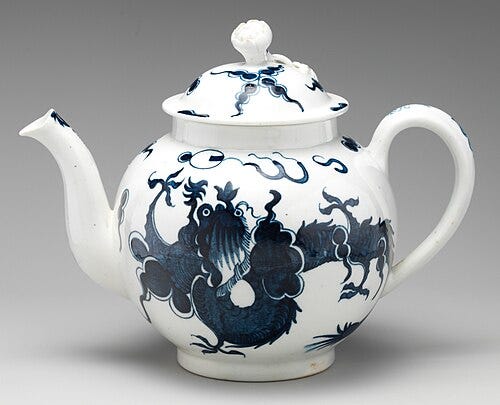
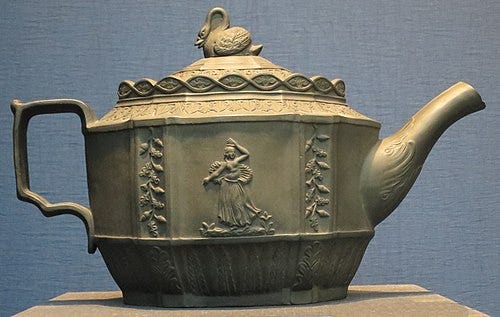
"But I haven't seen your stratum at all," demurred Billy to her guide, as they went down the stairway.
"Then there's something left for to-morrow," promised Bertram
The next day, however, Bertram, however, is intent on finishing another Face of a Girl when Billy pays a surprise visit with her kitten. The kitten gets into his paint box and Billy offers to pose for The Face of a Girl. She was so artless, so merry, so frankly charmed with it all that Bertram could not find it in his heart to be angry, notwithstanding his annoyance.
After a week at the Strata, Billy again climbs to Cyril’s musical stratum. He abruptly refuses to play A Maiden’s Prayer, a popular song. She asks, “do you want people to walk on tiptoe and speak in whispers?" Cyril replies: "Sometimes, perhaps." Billy secretly listens outside his door to a new composition. He discovers her hiding, and Billy asks him:
“…Mr. Cyril, what is that—that thing that's all chords with big bass notes that keep saying something so fine and splendid that it marches on and on, getting bigger and grander, just as if there couldn't anything stop it, until it all ends in one great burst of triumph? Mr. Cyril, what is that?"
Cyril heartily responds, telling Billy that it his new piece and marvels that she appreciates his music. Billy longs to play Cyril’s piano and finally sneaks upstairs to play it without Cyril’s knowledge. In an important scene, Cyril comes upon Billy at his piano.
There was no music before her, but under her fingers "big bass notes" very much like Cyril's own, were marching on and on to victory. Billy's face was rapturously intent and happy.
"By Jove—Billy!" gasped the man.
She is surprised and embarrassed. Cyril wants to know what Billy was performing.
"That was nothing. It was only what I had heard. I was trying to make it sound like—yours."
"And, by George! you succeeded," muttered Cyril under his breath; then aloud he asked: "Didn't you ever study music?"
Billy's eyes dimmed.
"No. That was the only thing Aunt Ella and I didn't think alike about. She had an old square piano, all tin-panny and thin, you know. I played some on it, and wanted to take lessons; but I didn't want to practise on that. I wanted a new one. That's what she wouldn't do—get me a new piano, or let me do it. She said SHE practised on that piano, and that it was quite good enough for me, especially to learn on. I—I'm afraid I got stuffy. I hated that piano so! But I was almost ready to give in when—when Aunt Ella died."
To be continued…
Billy Nielsen gets a piano and takes lessons from Cyril. She catalogues William’s knick-knacks. She poses for Bertram.
But, Aunt Hanna has reservations, and Kate Hartwell invents difficulties.
[Square pianos were common until the late 1800s when iron frames replaced smaller wooden ones, and upright pianos became the affordable standard. Eleanor Porter, a professional pianist, also deprecated them in Sister Sue. GLAD REFRAINS XIII ]
Illustrations: Google edition of Miss Billy, Wikipedia, and the photo collection of The Boston Public Library.
Copyright © Jim McIntosh 2025


